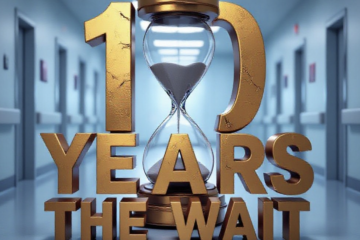Scottish voters are deeply divided over the nation’s long-standing policy of free university tuition, as mounting financial pressures push institutions to the brink. A new poll commissioned by the Carnegie Trust for the Universities of Scotland reveals that up to 48% of voters believe students who can afford it should pay, while 29% oppose any fees. Another survey question produced an even closer split, with 43% supporting means-tested tuition and 44% advocating for universal free education.
Universities Face Severe Funding Shortfalls
Scottish universities are grappling with financial instability, with Dundee University set to become the first to receive a share of a £10 million government bailout. Several other institutions, including Edinburgh University, are slashing budgets to avoid deficits. The reliance on international students to offset costs has become unsustainable, exacerbated by a significant drop in overseas enrollments.
- Scottish universities receive £7,610 per student from government funding, far less than the £9,250 English institutions charge in tuition fees.
- The system costs the Scottish government approximately £715 million annually.
- The number of overseas students fell by 10,000 in 2023-24, intensifying the financial strain.
Edinburgh University has announced a £140 million cost-cutting plan, while Dundee faces drastic measures including staff cuts and building sales. The financial turmoil is also affecting other UK universities, with multiple institutions in England announcing layoffs and program closures.

Tuition Cap Sparks Controversy
Scotland’s free tuition model, introduced by the Scottish National Party in 2008, has long been a source of pride. However, the policy comes with a cap on the number of Scottish students admitted each year, limiting access for some applicants. Critics argue that lifting the cap could improve educational opportunities but would require additional funding.
One proposed solution involves allowing wealthier students to contribute toward tuition costs, easing pressure on university budgets. However, strong political and public resistance to fees complicates any potential policy shift.
“Access to higher education should be based on the ability to learn – not the ability to pay,” a Scottish government spokesperson reiterated, emphasizing their commitment to maintaining the current system.
Citizen’s Jury to Weigh Future of University Funding
In an effort to find a viable long-term solution, the Carnegie Trust is assembling a citizens’ jury to assess university funding models. The 22-member panel, representing diverse backgrounds, will engage in six online evidence sessions before delivering recommendations in January 2026—just months before the next Scottish Parliament election.
Hannah Garrow, chief executive of the Carnegie Trust, stressed the need for a more informed discussion on the issue. “We’ve known for some time that something needs to change. We need to have a more open and nuanced debate about it.”
Universities Scotland, the sector’s representative body, welcomed the initiative, stating that the discussion has been stuck in a binary debate over free tuition versus fees for too long.
UK-Wide University Struggles
Scotland’s funding crisis mirrors broader troubles in higher education across the UK. While English universities receive higher tuition fees per student, they rely less on direct government grants. Inflation has significantly eroded the real value of tuition income, forcing institutions to cut costs aggressively.
Strikes and protests have erupted at universities including Dundee, Edinburgh, Newcastle, and the University of East Anglia, where staff face mass layoffs. The University and College Union (UCU) is mobilizing against job cuts, with industrial action planned at multiple campuses in the coming weeks.
With universities on both sides of the border facing budget deficits, the debate over higher education funding is set to intensify. Whether Scotland will adjust its approach to free tuition remains uncertain, but the financial pressures are impossible to ignore.


















